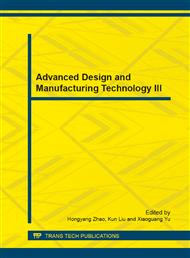p.2495
p.2499
p.2503
p.2507
p.2511
p.2517
p.2521
p.2526
p.2531
Emergency Scheduling Model of Urban Rail Transit Based on Genetic Algorithm
Abstract:
Urban rail transit plays an important role in daily life and optimal emergency scheduling determines social and economic benefits. To solve emergency scheduling problem of urban rail transit, a mathematical scheduling model is proposed in this paper. Based on the characteristic of urban rail transit, this scheduling model considers the benefits of both passengers and rail transit operator. Furthermore, on the basis of the model, three sorts of emergencies, such as closure of stations, outage of metro lines and surge of passenger flow are described and formulated, thus, model is solved through several GA operations. The testing results show that the model can accurately reflect the change of rail transit network during emergencies and quickly provide an effective emergency scheduling scheme.
Info:
Periodical:
Pages:
2511-2516
Citation:
Online since:
September 2013
Keywords:
Price:
Сopyright:
© 2013 Trans Tech Publications Ltd. All Rights Reserved
Share:
Citation:


